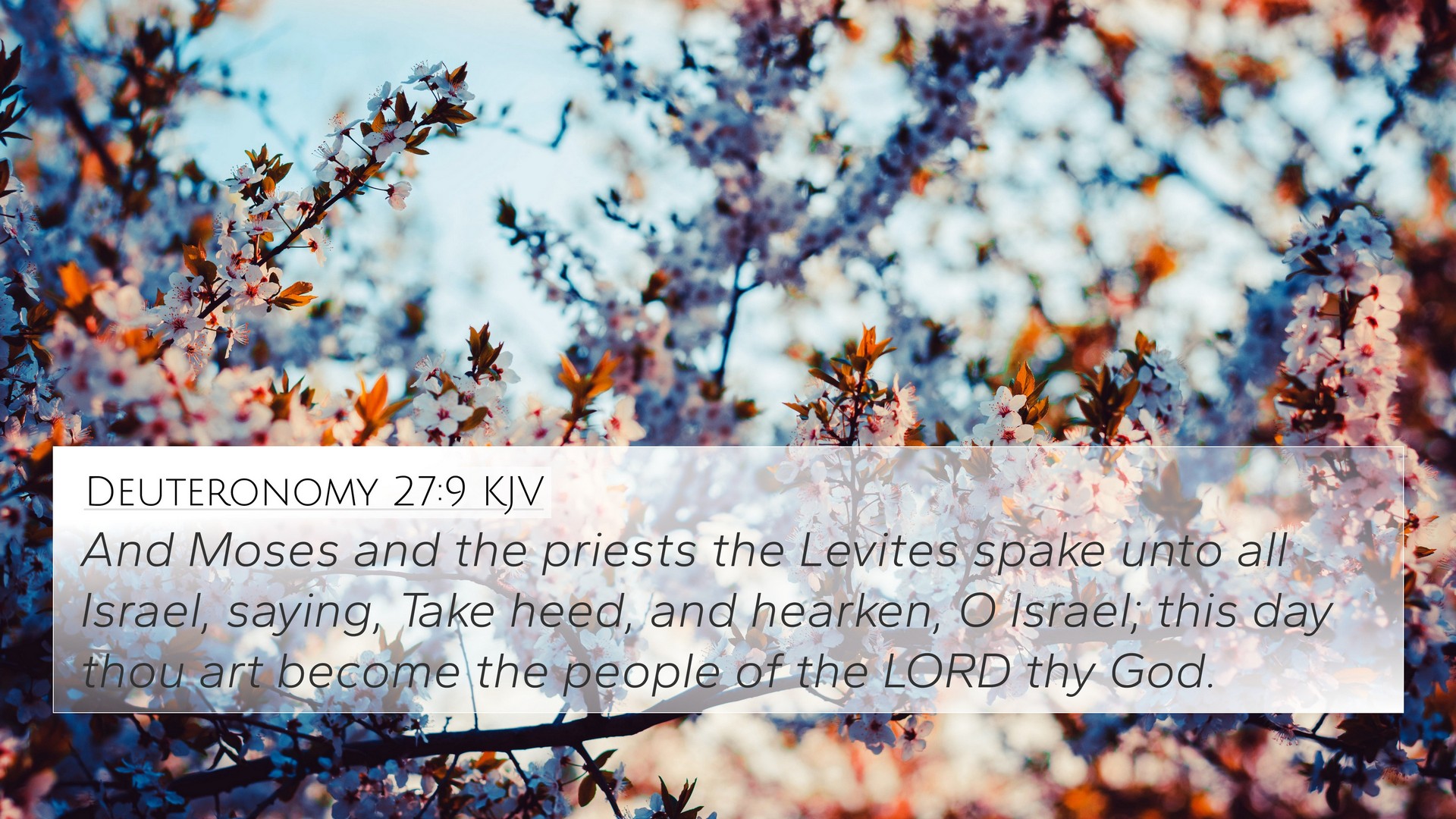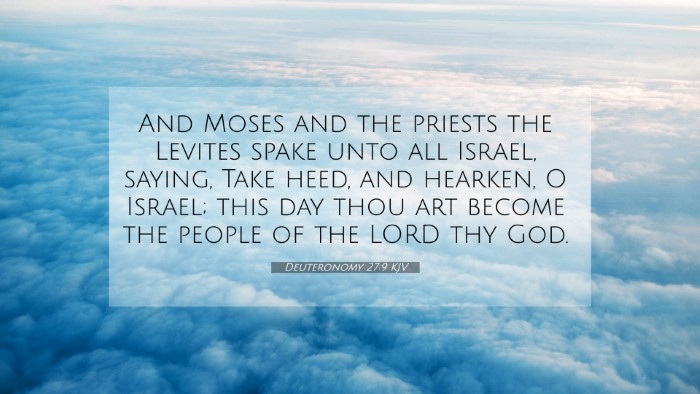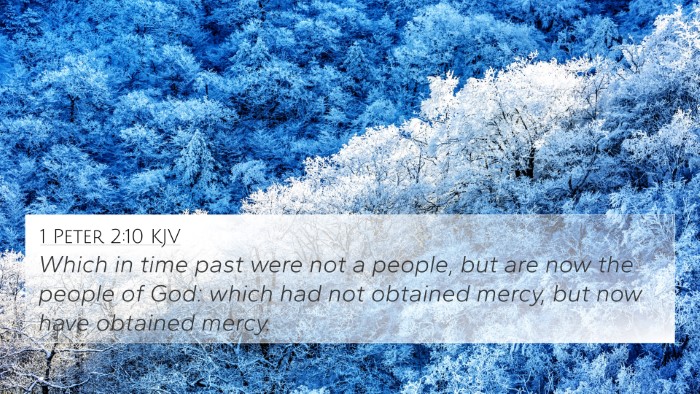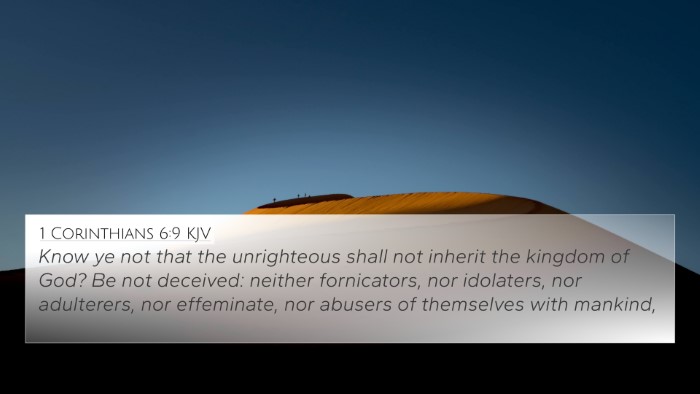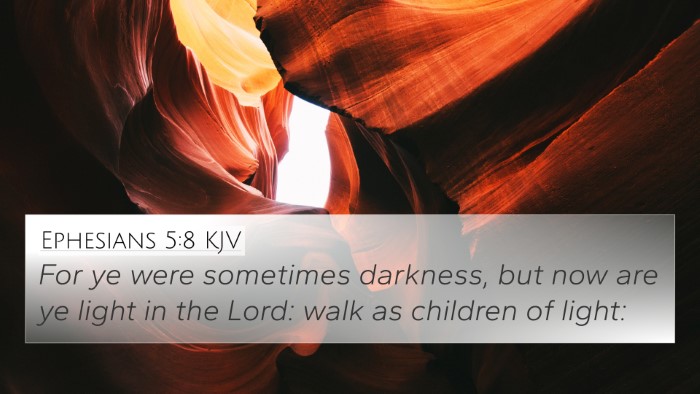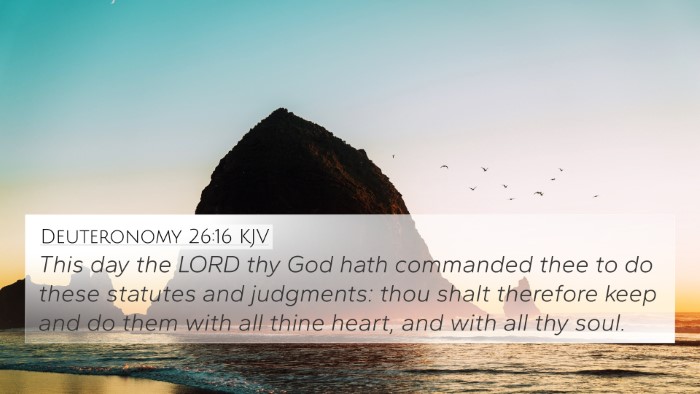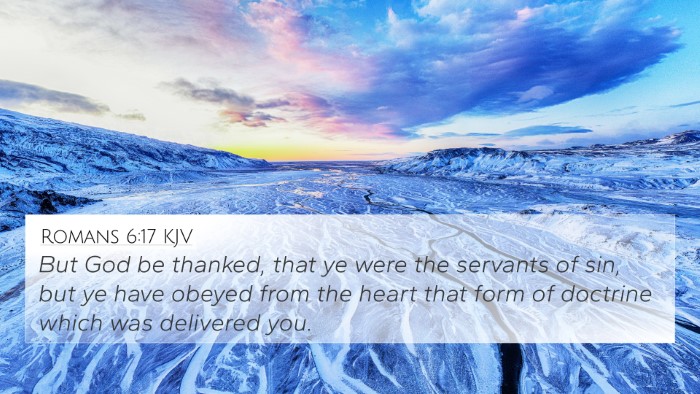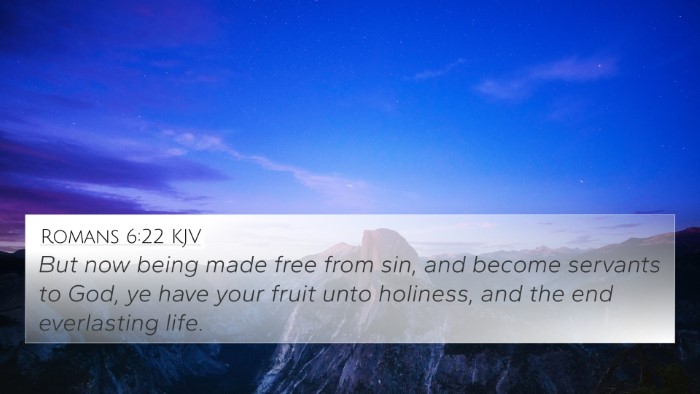Understanding Deuteronomy 27:9
Deuteronomy 27:9 states, "And Moses and the priests the Levites spake unto all Israel, saying, Take heed, and hearken, O Israel; this day thou art become the people of the Lord thy God." This verse is significant as it marks a pivotal moment in Israel's history, emphasizing their covenant relationship with God. Below, we explore the meaning and implications using insights from public domain commentaries.
Verse Meaning and Context
This passage highlights Moses addressing the Israelites, emphasizing their identity as God's chosen people. It serves as a reminder of their responsibilities under the covenant.
Key Insights
- Moses’ Leadership: Matthews Henry notes Moses as the leader who guides the Israelites into a deeper understanding of their covenant with God.
- Covenant Relationship: Albert Barnes emphasizes that the Israelite's status as God's people is not just a privilege but entails obligations to obey His commandments.
- Call to Attention: Adam Clarke indicates that the phrase "Take heed, and hearken" signifies the importance of fully participating in this covenant, urging the people to listen attentively to God’s word.
Cross-References
Understanding Deuteronomy 27:9 is enriched by exploring related verses that strengthen its context and message. Below are some significant cross-references:
- Exodus 19:5-6: "Now therefore, if you will indeed obey my voice and keep my covenant, you shall be my treasured possession among all peoples..." - This passage details the covenant setup that Deuteronomy reiterates.
- Leviticus 26:12: "And I will walk among you and will be your God, and you shall be my people." - This further affirms the relational aspect of the covenant.
- Deuteronomy 10:12-13: "And now, Israel, what does the Lord your God require of you, but to fear the Lord your God, to walk in all His ways, to love Him, and to serve the Lord your God with all your heart and with all your soul." - A call to obedience and a reminder of their responsibilities.
- Joshua 24:24: "And the people said to Joshua, 'The Lord our God we will serve, and his voice we will obey.'" - The continuation of the covenant theme in the next generation.
- Romans 9:4: "They are Israelites, and to them belong the adoption, the glory, the covenants, the giving of the law, the worship, and the promises." - New Testament affirmation of Israel's special status as God's people.
- 1 Peter 2:9: "But you are a chosen race, a royal priesthood, a holy nation, a people for his own possession, that you may proclaim the excellencies of him who called you out of darkness into his marvelous light." - The New Testament echoes the themes of being God's chosen people.
- Hebrews 8:10: "For this is the covenant that I will make with the house of Israel after those days, declares the Lord: I will put my laws into their minds, and write them on their hearts..." - Refers to the new covenant established through Christ, linking back to the Old Testament commitments.
Thematic Connections
This verse connects thematically with various teachings in the Bible and stands as a testament to continual divine guidance:
- Covenant and Obedience: Throughout both the Old and New Testaments, the theme of obedience to God as a response to His love is prevalent.
- Divine Ownership: The notion that believers belong to God is reiterated in multiple contexts, highlighting the depth of the relationship.
- Transformation of Identity: The transition of the Israelites from slavery to becoming God’s people signifies a broader narrative of redemption reflected in the New Testament.
Tools for Bible Cross-Referencing
For a thorough exploration of Bible verses and their connections, utilizing some cross-referencing tools can significantly enhance understanding:
- Bible Concordance: A valuable tool that lists words and phrases with corresponding verses.
- Bible Cross-Reference Guide: Guides that provide contextual links between verses.
- Cross-Reference Bible Study Methods: Various methods to study scripture in relation to one another.
- Bible Chain References: Systems developed to help trace theological themes through scripture.
Conclusion
Deuteronomy 27:9 serves as a vital reminder of the covenant relationship between God and His people. As one studies the connections and parallels found in scripture, it becomes evident that understanding this verse provides deeper insights into the foundational truths of the Bible. By applying tools for Bible cross-referencing, believers can find rich connections between various scriptures, enhancing their faith and comprehension.
Related Questions
- What verses are related to Deuteronomy 27:9?
- How do connections between the Old and New Testament illuminate the meaning of this verse?
- What thematic links exist between this verse and other scriptures regarding covenant?
